Fragments of a Hologram Hogwarts: What should science fiction’s answer to Harry Potter look like?
Ever since Pyr editor Lou Anders brought up the question of “why SF hasn’t had its Harry Potter” during an interview with David Alastair Hayden in Redstone’s first issue, and Charlie Jane Anders promptly picked up the question in i09, I’ve been wondering just what it would even mean for scifi to have a Harry Potter.
Anders’s response to the question is that scifi has already had its Harry Potter. He offers Orson Scott Card’s Ender’s Game series and Frank Herbert’s Dune novels as examples fitting the bill. A number of fans quickly rushed to plug their own favorite candidates for the title in response to Ander’s follow-up. Some of these other prospective SFHPs include Heinlein’s Starship Troopers and Have Spacesuit Will Travel, Keith Laumer’s Retief series, Harry Harrison’s Stainless Steel Rat series, Jack McDevitt’s Alex Benedict and Priscilla Hutchins novels, Larry Niven’s Known Space stories, the multi-author Robot City series, Phillip Pulman’s His Dark Materials trilogy, and Suzanne Collins’s Hunger Games trilogy. The suggestions which seemed to garner the most support by far were (not surprisingly) Star Wars and Star Trek – not novels at all (though they both spawned many), but they certainly have influenced a generation of authors and fans alike. Yet all these various answers beg the question, because the question itself is both vague and ambiguous.
It’s vague because people interpret the question in different ways. What do we mean when we ask, “What is scifi’s Harry Potter?”? Surely we don’t mean that we want for someone (J.K. Rowling, herself, perhaps?) to write Harry Potter and the Deteronic Frombotzer. We could instead mean, “Where is the series of scifi novels which will introduce millions of new readers to the genre in such a way that it will revitalize the industry the way Rowling’s books revitalized fantasy?” Or we could mean, “Where is the scifi book that is going to make it ‘cool’ to be a fan?” Or we can, more cynically, mean, “Where is the scifi series which is going to become a world-wide bestseller, blockbuster film series, and multi-billion-dollar merchandising franchise?” (And how can I be the one to write it?) Or we can mean something highly specific like, “Where is the scifi series which will take a character from pre-puberty to adulthood so that the reader can grow up with the protagonist and make a lasting connection which then will transfer to other books and authors in the genre?” Or “Where is the scifi story which will resonate with fans of the genre and non-fans alike by invoking the universal hero’s quest?” Clearly Rowling’s books have done all this for fantasy. But depending on which of these questions one is really asking, different answers will appear.
The question is also ambiguous, because one can easily replace the future tense verbs in the various interpretations above with the past perfect. Many people seem to think scifi has already had its Harry Potter, so the question “What is scifi’s Harry Potter?” is assumed already to have an answer. And in a way, it does. Practically every scifi fan can recall the book or author or series which first captured his or her imagination and made her or him a lifelong scifi fan. (My own gateway drugs were Burroughs’s Martian tales and Heinlein’s so-called “juvenile” novels.) But there doesn’t seem to be one single scifi book or author or series which has done this for as large a number of people as the Harry Potter series has for fantasy, though I’m inclined to believe Anders (who I expect has marketing data to support it) when he says Ender’s Game is “still selling like hotcakes” and that Dune is “cited almost as often.”
Both of the SFHP candidates which Anders mentions seem fitting, and not just because they sell well. They have some underlying similarity in common with Rowling’s story arc. Ender Wiggin and Paul Atreides, like Harry Potter (and Luke Skywalker and King Arthur, I might add), are identified in their youth as being different from other children. They have special powers, partly as a result of their mysterious pedigrees, though they don’t realize their true background until they are singled out for special schooling to develop their hidden talents. A formidable and predestined enemy (Formics, Vladimir, Voldemort, Vader, Lot), attempts to have them either killed or brought over to the “Dark Side.” Each hero undergoes either a metaphorical or a literal descent into the underworld. And in the end, of course, they each save their worlds (or in some cases, galaxies) from destruction.
It’s not really all that surprising that these SFHP stories, which predate HP by decades, have garnered (and continue to garner) such popular appeal. Each essentially follows the prototype ur-blockbuster, the “Hero’s Journey” archetype which Joseph Campbell (1949) has dubbed the “monomyth” (a term from Finnegan’s Wake). It’s the same pattern found in many of the world’s great religions – Osiris, Moses, Buddha, Jesus (which is why evangelical Christian groups’ continued protests against Harry Potter have always struck me as epically ironic).
Navigate: Page 1 Page 2

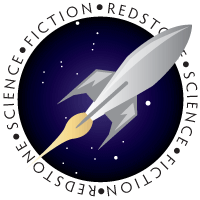






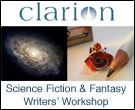


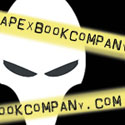
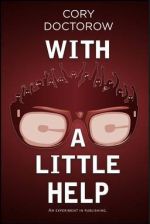
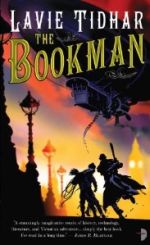
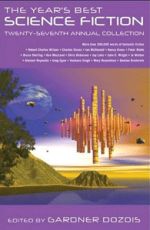


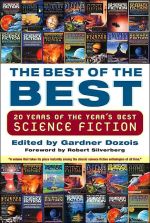


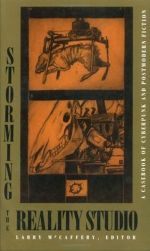



7 comments
[…] Fragments of a Hologram Hogwarts: What should science fiction’s answer to Harry Potter look like? by Henry Cribbs […]
Alan Dean Foster’s Pip and Flinx stories? But no. I think there are more elements to Harry Potter which make it such a watershed for fantasy, though: one of them is that we’re not just watching Harry grow, we’re watching Hermione, Ron, and yes even Malfoy. We’re seeing young boys and girls become young men and women, friends, enemies, all in this journey.
The closest SF I can think of for that is perhaps Heinlein’s Space Cadet, but it starts with the group too old, and doesn’t continue for 7 (increasingly long) novels. Ender’s Game certainly comes close, but Ender is brutal in ways which Harry isn’t, even when he is accidentally maiming Malfoy with sectumsempra; and there is not the Harry-Hermione-Ron give and take, the group and relationship growth and true non-secondary characters.
[…] Henry Cribbs, our monthly columnist, considers the idea that Lou Anders raised in his interview with us in Issue #1 – What is science fiction’s answer to Harry Potter? As usual, Henry mixes a fan’s enthusiasm with an academic eye to a produce an entertaining and thoughtful piece. […]
I think SF can’t generate its own Harry Potter, for some of the reasons stated here, but I would take it a lot further. I think SF is more difficult than fantasy; harder to write, to read, and to think about. Fantasy panders to wish-fulfillment; as Mr. Cribbs notes, it’s easy to explain how a fantasy character is “special,” and not so easy in SF. But what really is being “explained” in fantasy? Generally what counts as “explanation” is only assertion. Powers, prophecies, etc, are there simply because they are said to be there. *Nothing* is truly explained in any real-world sense. It is, as Robert Frost said in another context, playing tennis with the net down. Example: I just watched the 1st 2 seasons of Lost. Based on where that show was after 2 seasons, would you say it would be easier to wrap it up in a SFnal way, or a fantasy way? So you have weird things happening on the island, and naturally people are wondering why, and if the answer turns out to be, “Because it’s magic,” not very many people are going to be satisfied with that answer–so they introduced a couple of godlike characters, and then if weird things happen it’s because the godlike characters make them happen, but it’s really just the same thing. Just a more complicated version of “Because it’s magic.” The smoke monster is a malevolent spirit, able to create perfect simulacra of humans, yet imprisoned on an island for millennia? Sure. Whatever. Naturalistic explanations would be much harder, and they might force people to confront some comforting, tranquilizing beliefs. Unfortunately, a population with the intellectual depth of a community-college-grad, untrained in critical thinking, in search of easy affirmation, in a country where Sarah Palin, for instance, is able to fill stadiums based on a persona that celebrates ignorance, where this–http://www.theonion.com/articles/nation-shudders-at-large-block-of-uninterrupted-te,16932/–is funny because it’s true, where (I speak from personal experience here) knowing a simple fact like the circumference of the earth makes you “weird,” is unlikely to understand.
How do you wrangle a science-based specialness? Easy – a maguffin. It’s been done all over the place. Rowling even dabbled in it – Harry gets to do cool stuff not just because he’s got a pedigree, but also because he stumbles into special items like the invisibility cloak. Hell, it’s the entire point of Lord of the Rings.
Stanley Scifi finds a cool thing that does cool things. The cool thing is special, and due to special circumstances he becomes guardian of the cool thing, in spite of being for all appearances completely ordinary. The cool thing has to be protected from bad guys/delivered somewhere/destroyed/etc. ADVENTURRRRE! Stanley has experiences which change him, until he is maybe not so ordinary anymore and possibly worthy of the title “hero”.
Stanley also has a cute animal sidekick. There, I just sold a hundred thousand copies.
Perfect.
We’ll expect a check ;-)
If I can summarize your later points: the Hero’s Journey is predicated upon Destiny, a guiding force with an end in mind; and science fiction generally rejects destiny because the laws of physics don’t play favorites.
But the laws of statistics DO play favorites, if you listen to Louis Pasteur: “Chance favors the prepared mind.” And indeed, this is the pattern in both Heinlein coming-of-age stories and also in Ender’s Game. Sometimes by dint of natural inclinations but often by subtle and overt mentoring, the young protagonist endures lessons and challenges that prepare him or her for greater challenges that await. (I can’t say for Dune, since I’ve never been able to get past the fourth chapter. Every decade or so, I try again, and get stuck in the same spot.)
Yes, some of that applies to Harry Potter as well. Dumbledore hints, for example, that Neville could just as easily have been the chosen one under different circumstances. And Harry’s final prowess is shaped by all his teachers, formal and informal.
But destiny and prophecy are still at the root of Harry’s specialness. In Heinlein and Card, it’s aptitude that counts, not destiny, and then that aptitude must be honed.
I think one way a SF equivakent would be possible would be to deemphasize the individual. Make an ensemble piece that follows a group of varying ages. This could have something of a soap opera feel; but teen ensemble soap operas have a long history and a following. The challenge would be to include the soap opera elements that make kids (and other soap fans) care about the characters, but then place those against a backdrop of some looming menace. The story would start with the characters prominent and the menace mostly hinted. Over time, as they grow, they realize the menace has always been there, kept safely out of their knowledge by the adults. As they realized its scope, the soap opera elements would seem silly, even petty. At the same time, some of them would long for the days when those were their only concerns. Maybe some even would retreat back to those concerns, and deny the larger menace.
Assuming the conflict is a war (the easiest assumption), the story could start with early teens, and follow into young adulthood. As the characters separated and followed their individual courses, the scope would naturally grow: from a neighborhood and a school, to a nation, to a star system, and beyond.
I think I’ve just described Starship Troopers retold over 7 volumes, with a larger cast. Please, please, whatever you do… DON’T LET PAUL VERHOEVEN ANYWHERE NEAR IT!